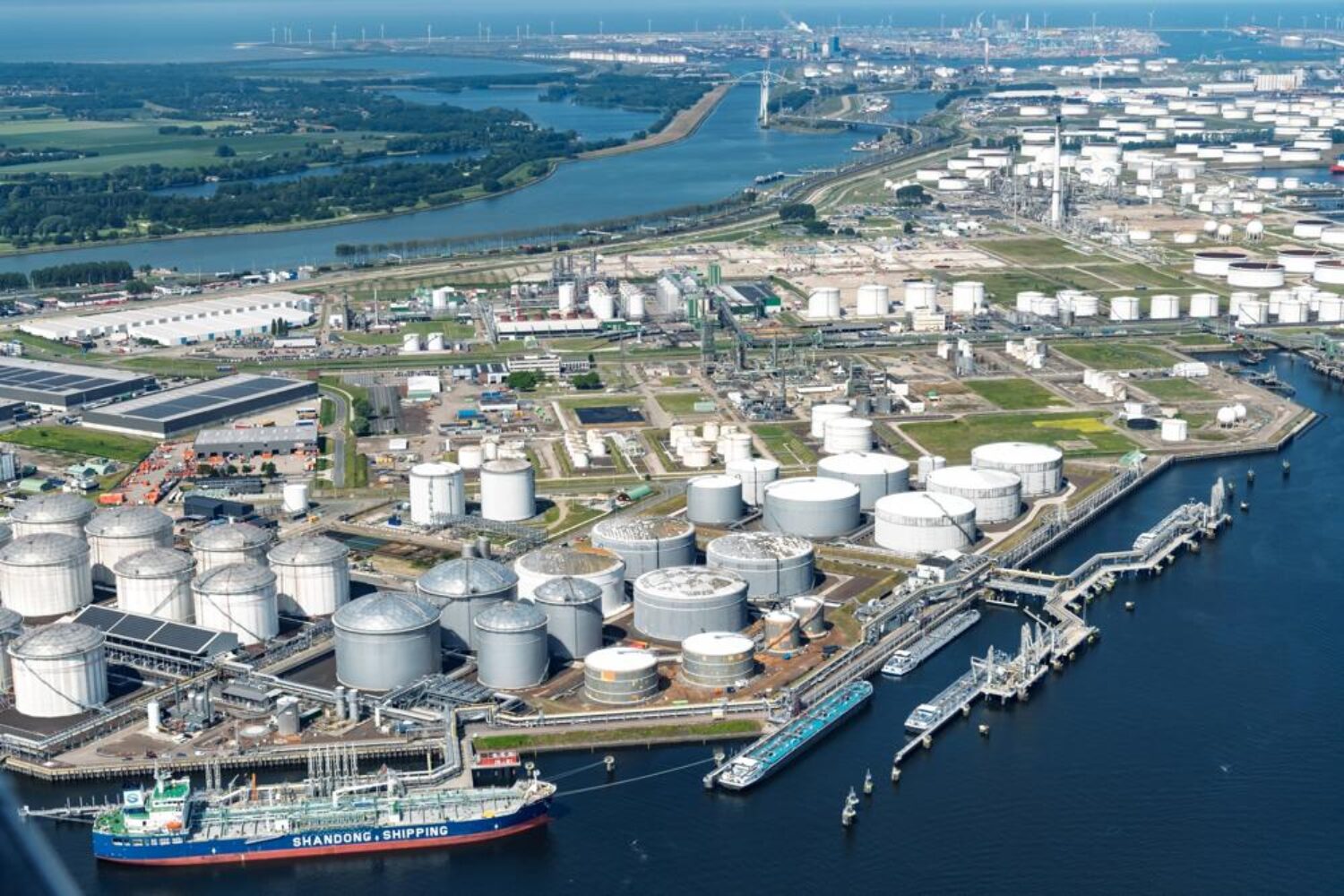Europe’s largest deep-water port, Rotterdam, recorded a 4.1% decline in cargo throughput to 211 million tons in the first half of this year.
While handling volumes of dry and liquid bulk fell significantly, container throughput measured in TEU increased.
Port of Rotterdam: “Box handling increases, tons decrease”
Container throughput rose by 2.7% to 7 million TEU between January and June. In terms of tonnage, however, a decline of 1.0% to 66.5 million tons was recorded. The growth was primarily driven by higher imports from Asia (+8.4%) and North America (+9.1%). At the same time, the number of empty export containers increased, while full export containers fell by 5%. The port operator sees this as an indication of the declining competitiveness of the European industry.
Decline in dry and liquid bulk
The decline was particularly marked in the dry bulk segment, which shrank by 8.9%. Coal (-21.1%) and iron ore/scrap (-12.2%) had a particularly negative impact on the result. Agribulk, on the other hand, increased by 18.6% as the Netherlands imported more oilseeds. The liquid bulk segment also declined by 5.3%. While crude oil increased by 2.6 %, the volumes of mineral oil products fell (-21.5 %). Meanwhile, LNG throughput increased by 9% as Europe’s storage facilities continued to be filled.
Siemons: “We must maintain a stable course in turbulent times”
“In recent months, we as a port have been confronted with economic uncertainties, investment backlogs and supply chain disruptions,” emphasized Boudewijn Siemons, CEO of the Port of Rotterdam Authority.
It is crucial to strengthen the competitiveness of the industry and guarantee Europe’s security of supply, explained the port CEO, who has been in office since February 2024. “We must maintain a stable course in turbulent times and secure the future viability of our port,” Siemons continues.
Rising revenue despite declining throughput
Despite the decline in cargo volumes, the port authority was able to increase its revenue by 5.2% to € 462.3 million. EBITDA increased slightly by 1.1% to € 295.0 million. Net profit fell by 3.2% to € 143.6 million, which is partly due to changes in IT costs.
Investments totaled to € 136 million (-17%) in the first half of the year. At the same time, the port advanced its transition to a more sustainable industry: the “Porthos” CCS project is progressing according to plan and is scheduled to go into operation in 2026. In addition, a shore power facility for cruise ships was opened this March, which already meets European regulations.













